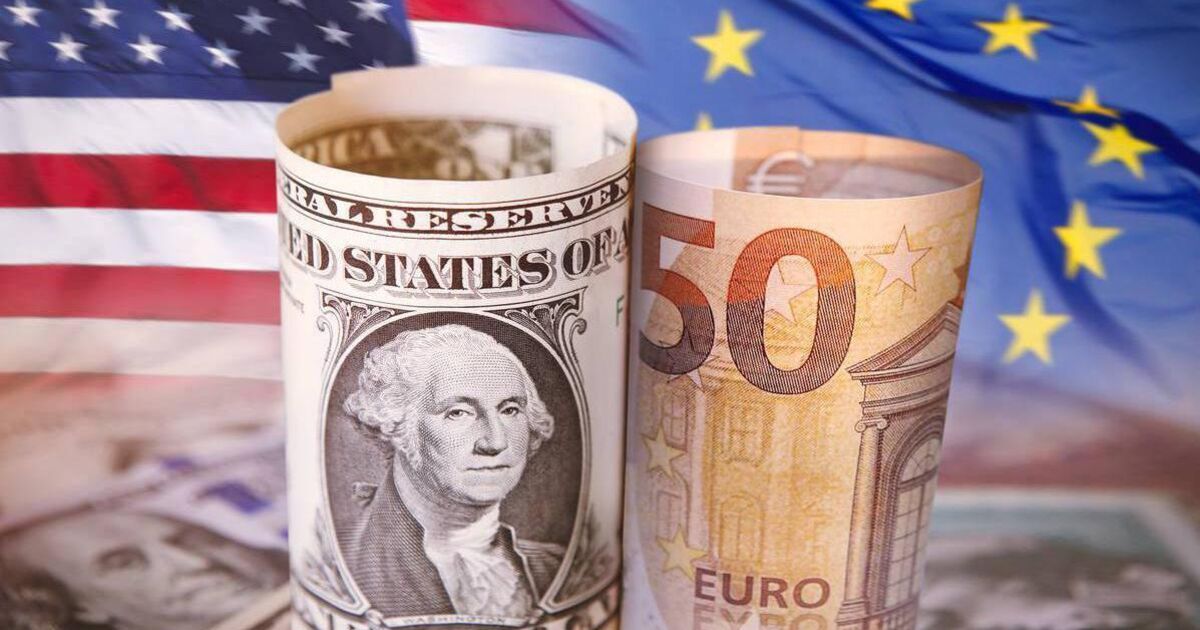The European Union will suspend its two packages of countermeasures to US tariffs for six months following the deal made with US president Donald Trump, a Commission spokesperson said confirmed on Monday.
The EU-US agreement leaves many questions open, including tariff rates on spirits like Irish whiskey, and Mr Trump’s executive order last week setting tariffs on most EU goods at 15% did not include carve-outs such as for cars and car parts.
EU officials have said they expect more executive orders to follow soon.
“The EU continues to work with the US to finalise a Joint Statement, as agreed on 27 July,” the spokesperson said in a statement.
“With these objectives in mind, the Commission will take the necessary steps to suspend by six months the EU’s countermeasures against the US, which were due to enter into force on August 7.”
The retaliatory tariffs were in two parts: one in response to US steel and aluminium duties, and the other to Trump’s baseline and car tariffs.
Meanwhile the Swiss government is ready to make a “more attractive offer” in trade talks with Washington, the cabinet said on Monday, after a crisis meeting aimed at averting a 39% tariff on Swiss imports that could hammer the export-driven economy.
The Federal Council it was determined to pursue discussions with the United States, if necessary beyond the August 7 deadline that Mr Trump has set for the tariff to come into effect.
“Switzerland enters this new phase ready to present a more attractive offer, taking US concerns into account and seeking to ease the current tariff situation,” it said in a statement.
The statement did not give any details on what the Swiss government may offer.
Switzerland was left stunned on Friday after Mr Trump hit the country with one of the highest tariffs in his global trade reset, with industry associations warning that tens of thousands of jobs were at risk.
The duties are scheduled to go into effect on Thursday, giving the country, which counts the US as its top export market for pharmaceuticals, watches, machinery, and chocolates, a small window to strike a better deal.
The White House said on Friday it had made the move because of what it called Switzerland’s refusal to make “meaningful concessions” by dropping trade barriers, calling the two nations’ current trade relationship “one-sided”.
Swiss industry leaders and politicians, however, have struggled to understand why the country was singled out.
Mr Trump has stated that he is seeking to rebalance global trade, claiming that current trade relations are stacked against the United States. And Switzerland had a €41bn trade surplus with the US last year.
But Swiss president Karin Keller-Suttersaid on Friday Switzerland had given US goods virtually duty-free access to its market, and Swiss companies had made very important direct investments in the United States.
“The president (Trump) is really focused on the trade deficit, because he thinks that this is a loss for the United States,” she told Reuters.
The new tariff rate – up from an originally proposed 31% tariff that Swiss officials had already described as “incomprehensible” – would deal a major blow to Switzerland’s export-focused economy, with economists warning prolonged disruptions could shrink Swiss GDP by more than 1%.
The tariffs could also see the Swiss National Bank cut interest rates in September, according to Nomura.
An index of Swiss blue-chip stocks briefly hit its lowest since mid-April, as shares in banks, luxury retailers and pharma companies tumbled. The SMI index was last down 0.6% on the day, compared with a 0.6% rise in the regional STOXX 600 index.
In Zurich, shares in high-end watchmakers such as Richemont and Swatch fell in volatile trading.
Reuters
